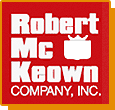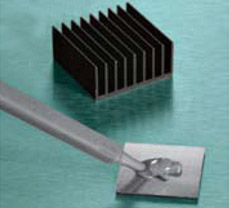-
Conductive Film Adhesives
electronic-assembly-and-fabrication-tapes
-
High Temperature Film
PTFE films provide a conformable release surface and exhibit a remarkably low coefficient of friction and non-stick properties. PTFE films have high temperature resistance and are virtually unaffected by all chemicals. At elevated temperatures, PTFE film still retains excellent tensile strength. Service temperatures range from -100°F to +500°F (-73°F to +260°C). Film applications include high temperature coil and capacitor wrapping, composite bonding, masking, and conveyor release linings.
-
Polyimide Films
Polyimide films are employed because of their extreme heat resistance. Service temperatures range from -100 °F to +500 °F (-73 °C to +260 °C). These flame retardant films exhibit high tensile strength and conformability, good solvent resistance, excellent dielectric strength and good abrasion resistance.
Polyimide tape applications include electrical insulation, capacitor, transformer, and coil wrapping, electronic assembly, and wave solder protection. -
Polyimide Films
Polyimide Films
(4)The heat resistance and dielectric strength of polyimide tapes make them excellent choices for high temperature insulation and processing applications.
-
Acetate Cloth Tapes
3M™ Acetate Cloth Tape is an aesthetically pleasing tape which offers excellent conformability in coil wrapping applications up to 105 °C.
3M™ Acetate Cloth Tape also offers excellent absorption of resins and varnishes. Available in custom widths from 1/8 in to 24 in, and comes standard on a 72 yd roll on a 3 inch diameter core. -
Acetate Cloth Tape
Acetate cloth backing and a thermosetting rubber adhesive system create a hand tearable product with high adhesion, conformability, printability and excellent insulating properties.
-
CHO-FOIL Conductive Tapes
CHO-FOIL EMI Shielding Tape with Conductive Adhesive (Copper, Aluminum or Tinned Copper)
Chomerics’ CHO-FOIL tapes are an economical EMI shielding solution for a variety of commercial uses. The tapes are available in copper, aluminum, or tinned copper foil backed with Chomerics’ highly conductive pressure-sensitive adhesive (Recognized Under the Component Program of Underwriters Laboratories, Inc.). CHO-FOIL copper tape is available with a non-conductive adhesive for applications requiring surface conductivity only. An embossed version of CHO-FOIL copper tape is also available, for a more attractive appearance up to 6 inches (152 mm) wide. Standard length rolls and die-cut custom shapes can be ordered.
CHO-FAB EMI Shielding Fabric Tape with Conductive Adhesive
CHO-FAB tape is a corrosion resistant nickel-plated cloth coated with Chomerics’ highly conductive pressure-sensitive adhesive (Recognized Under the Component Program of Underwriters Laboratories, Inc.). CHO-FAB tape is extremely strong and lightweight, and has excellent conformability/wrapability to enhance shielding performance and appearance. Use of corrosion resistant nickelplated cloth and Chomerics’ superior metal-particle-filled conductive adhesive technology produces a tape used in a wide variety of EMI shielding and grounding applications. -
Foil Products
Foil Products
(4)Nitto Denko’s foil products are engineered to provide the highest EMI/RFI shielding effectiveness available in a pressure sensitive tape. Our interlined products permit ease of die cutting and are highly conformable for convenient application.
- Foil Products
-
Speciality Tape
Speciality Tape
(4)The unique characteristics of these tapes make them ideally suited for high voltage insulation applications. Zone coating allows for complete impregnation of the varnish.
-
Paper Electronic Tape
Paper Electronic Tapes are designed to satisfy a variety of in-process and packaging needs of "Through-Hole" electronic component manufacturers.
-
Paper Electronic Tapes
3M™ Paper Electrical Tapes are used for banding coils, covering bobbin-wound coils, and for end-turn taping.
Robert McKeown offers a variety of adhesive and sealant products for a wide range of commercial and industrial applications. Our silicone epoxy adhesives and sealants, in particular, are ideal for applications such as:
FEATURES AND USES OF ELECTRONICS SEALANTS AND ADHESIVES
Providing ultimate reliability and longevity, our electronics adhesives and sealants can be used to form bonds to many different surfaces and substrates, including:
- Ceramics
- Metals
- Glass
- Filled plastics
These specialized solutions eliminate the need for mechanical fastening and clamping while allowing for optimal ease of processing. Reliable and efficient in temperatures ranging from -45 °C to 200 °C, our electronics adhesives and sealants provide excellent dielectric insulation.
Most silicone formulations are solventless, eliminating the need for special storage, ventilation, or handling. And because many of our electronics adhesives and solvents are reworkable, they offer great flexibility and allow for easier module repair.
Electronics adhesives and sealants are frequently used in: automotive, communications, industrial, and energy industries, as well as consumer devices.
Extremely versatile, these adhesives can be used for:
- Sealing lids and housing grooves
- Cushioning or stabilizing fragile components
- Affixing components such as capacitors and coils to circuit boards
- Adhering module lids and baseplates
- Gasketing
SILICONE ADHESIVES
One of the most popular types of electronics adhesives, silicone adhesives provide excellent flexibility and high heat resistance, making them ideal for electrical, automotive, aerospace, and construction industries. There are several varieties of silicone adhesives available, including:
- Two-component systems that require a curing agent
- One-component systems that cure through air moisture
- UV or EB radiation curing adhesives
- Pressure-sensitive versions that adhere to surfaces with little pressure
RTV sealants (room-temperature vulcanizing) begin to cure as soon as they’re exposed to moisture in the air, so they must be used quickly. Pressure-sensitive sealants offer a permanent tackiness. UV- or radiation-cured sealants, on the other hand, require UV light to cure, while thermoset silicone sealants require heat to cure. Although not as strong as other sealants or adhesives, electrical silicone sealants remain flexible even when fully dried or cured. Various types of silicone sealants serve as ideal solutions for high-heat applications like engine gaskets.
In electronics fabrication, silicone adhesive sealants are often used for fixing parts on circuit boards, LCD module assembly, general sealing, and component protection. Specific formulations differ depending on intended use and can be customized to allow for enhanced thermal conductivity, superior protection of metal electrodes, and faster cure times. These sealants are available in chemical-, heat-, mildew-, and oil-resistant formulations to meet a wide range of application needs.
Industrial silicone epoxy is used for:
- General-purpose fixture sealing of tubs
- Windows, ductwork
- Gaskets
- General-purpose bonding
- Sealing
THERMAL SEALANTS
High temperatures often present problems for conventional adhesive materials and can affect printed circuit boards and assemblies. At Robert McKeown, we offer the highest-level special adhesive grades of thermal sealants, which allow for enhanced thermal conductivity. Both low-viscosity liquids and non-slump formations are available in two-cure chemistries.
We also offer one-part moisture-cure grades, which use room-temperature processing to cut back on equipment needs. After cure, the materials form strong but flexible bonds, which protect from mechanical stress and vibration. Both one- and two-part heat-cure solutions accelerate processing and support high throughput production.
Heat resistant silicone adhesives are extremely versatile materials and dispense easily at room temperature, but can also cure quickly at any thickness level at temperatures as low as 90°C. Efficacy and functionality are improved when higher temperatures accelerate cure times.
CHEMICAL RESISTANT ADHESIVES
Chemical resistant silicone adhesives are commonly used in:
- Chemical processing plants
- Chemical piping and tanks
- Medical devices
These adhesives can reliably protect against a wide range of chemicals and harsh materials, including acid, alcohol, and fuel. Depending on specific application requirements, they can also provide resistance against solvents, bases, sterilization, and water.
EPOXY BASED ADHESIVES
Epoxy based adhesives are created by mixing a resin and a hardener. Curing is initiated when the resin is mixed with a certain catalyst. The covalent bonds resulting from this combination determine the rigidity and strength of the epoxy sealant.
Epoxy adhesives can reliably adhere to a variety of materials and are ideal for applications demanding chemical resistance, high strength, and low stress. Thermally conductive, microelectronic-grade, general-purpose, high-temperature and chemical resistant epoxy adhesives are available as both one- and two-part solutions. Epoxy adhesive and sealants allow for room temperature, thermal, or UV-curing capabilities.












